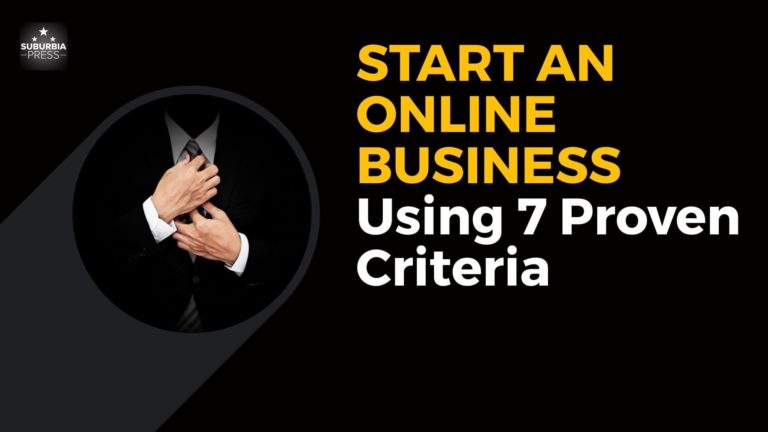Business Planning Mistakes: 7 Common Mistakes to Avoid
Have you ever thought about starting your own business? If so, have you started writing a business plan to take on the challenge?
Most entrepreneurs who start their own businesses do not write out a formal business plan. Many people think that this is not necessary because they can just wing it. That’s perhaps one of the most critical business planning mistakes
Having a detailed and well-thought-out business plan will help any entrepreneur avoid common mistakes that many make in establishing their companies.
This article discusses seven of these mistakes—mistakes that we hope never happen to you!
Every entrepreneur makes business planning mistakes when creating a startup

Even though every entrepreneur makes mistakes when creating a business plan. Being an entrepreneur means more than being an expert with your product or service.
You need to understand how to set objectives for your business plan. Think about the growth rate of your business. Make sure you understand your ideal customer and why they want to do business with you.
Start by laying out a timeline of when you plan to achieve your company goals. Determine the type of capital needed to make those goals happen and figure out how much money it will take to get there with conservative estimates.
Create short-term goals that are achievable within one year or less, medium-term goals for three years, and long-term goals for the next five years.
Determine your market niche, who you want to sell to, and what makes your product or service different from others. With this information in mind, identify any potential competitors that may be out there waiting for you when you launch.
Now it’s time to work on finding investors for your company. The perfect place to start is with a bank or financial institution, which may be willing to work out an arrangement for loans and line of credit arrangements that will help you grow.
Be sure to take the time to research any investors before approaching them so you know what elements might make them more interested in investing in your business rather than turning you down right away.
If the bank doesn’t seem like a good fit, then try looking at private investors or venture capitalists on your own.
Lastly, make sure to work within all legal boundaries and get in touch with any industry regulations that may affect your business as you launch it. This will help avoid fines and other penalties related to breaking any rules.
1: Starting too big of a business
One of the most common mistakes that entrepreneurs make when writing their business plans is to start too big. Starting too big can lead to disappointment later on when you don’t reach your goals and expectations.
Starting too big means starting with a business that has more resources than you can realistically handle. You may want to start with a business that is much easier on your wallet and time, such as buying a coffee stand, than trying to open your own restaurant or bookstore from the get-go.
Starting a small business with low risk, and high return potential allows for more manageable growth in this post-recession economy as well as gives the entrepreneur time to learn what is and isn’t working.
2: Not being prepared for the challenges ahead
Starting a new business isn’t like working for someone else. There are challenges, personally and professionally, that employees never encounter. You need to be prepared for these challenges and have a plan in place ahead of time.
Some of these challenges include managing your time, balancing work and family obligations, the stress involved with running a business, handling finances for yourself, and maintaining relationships while you’re busy working to build up your company.
Employees can focus on their job without worrying about any outside responsibilities because they don’t have any. We all have personal or family issues, but business owners face additional responsibilities that challenge their business and personal lives.
Unexpected obstacles appear at any time. If you build your business online and your server suddenly has a 500 internal server error, your sales engine is out of order. What do you do?
To prepare for these challenges, you should establish a personal and professional business plan that outlines your priorities as well as the steps to take on both fronts to reach your goals.
For example, if family obligations are high stressors then you need a way to reduce those pressures so they’re not affecting work–perhaps by hiring an assistant to help you out with errands and other tasks, so when it comes time for work, all your focus is there.
3: Having no idea how much money you need to run the company

Many entrepreneurs don’t realize all of the expenses they face when creating a startup. They also underestimate how long it takes to earn revenue to offset those expenses. Of all the business planning mistakes, this one is the biggest killer of your dreams.
It’s difficult to determine how much money the startup needs and where to obtain that money.
In many cases, this can lead entrepreneurs into a cycle of debt as they try to keep their company afloat with loans or credit cards.
A business plan helps answer these questions by estimating what your monthly expenses are likely to be and how to get the money for them.
4: Forgetting about personal finance when planning your business
In addition to your business finances, you need to keep an eye on your personal finances and how to pay those bills. New businesses often fail to keep themselves afloat, so you need to ensure that not only your company’s budget but also your own personal expenses are taken care of with savings or income.
Before the money starts coming in, it helps if you have a cushion for living expenses.
Your debt and your credit score will also matter as you try to get loans from banks or other lenders for your business.
Be sure that these things are taken into account when building a plan for your new enterprise, so that the future of both personal finances and the company’s finances are robust.
You can’t live without money, so don’t risk running out of funds for your personal life before you even have a chance to get an income.
5: Why You Need to Plan an Exit Strategy
Always start with the end in mind. You may not operate your new business forever, so have a plan to exit if necessary.
Be ready to deal with all the risks and challenges that could affect your business.
Plan so you can respond quickly if one of these emergencies pops up. If something comes up that you can’t handle, be ready to get outside help.
An expansion may not go as planned or a competitor could come out with an even better product/service, so be prepared if this happens.
If you’re not sure what needs to be done next in this business plan, contact an expert. The small business administration may help, or perhaps another entrepreneur can offer some guidance. It’s always good to build relationships with other entrepreneurs who can share their wisdom from time to time.
6: Thinking that there is one best way to do things in business
Starting a business may disabuse you of the notion that you’re an expert in your field. Perhaps you were an expert as an employee, but the marketplace requires skills that require you to adapt to changing conditions.
You might think that this is obvious, but if it’s not the first thing on your list of things to do then you’re going to be scrambling later. You may even find yourself asking “did I forget something?”
In today’s world of rapid change and new technology, this is a common mistake even among experienced entrepreneurs.
Contingency planning often gets short shrift in business plans because it’s not glamorous and the owner doesn’t want to get bogged down with details before they start their enterprise. But without some thought about what could go wrong, your plans may not be viable.
Businesses in nearly every industry are going to have some challenges that only they can solve well and others where they will need outside help or collaboration with other companies. It’s important to know which of these models is best for your particular business idea.
It’s a common mistake to think that the entrepreneur is going to be able to do everything themselves, but this isn’t realistic in most cases. Of course, some exceptions have been so successful because they were exceptional at doing many of these tasks simultaneously
7: Focusing on the wrong information when creating a business plan
In another business, I misread signs about the interests of my ideal customer. As a result, I created an offer that only one person accepted, and had to refund him because I needed a minimum customer count to make the plan work.
Don’t assume you have the right information. Validate your business plans before you open your doors to the public.
In Conclusion
The bottom line is that every business needs a good plan for success, but not all businesses have the same requirements. When considering which type of plan will be best for you and the market you serve.
Creating a business plan can be an overwhelming prospect and there will always be business planning mistakes. By starting with these seven mistakes and avoiding them as best you can, you’ll have the foundation for success in your company!














